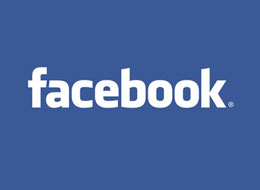 You might have missed this. I certainly did – but then again for the last week or two I’ve been running around like the proverbial ‘blue arsed fly’ trying to juggle a variety of personal, professional and voluntary responsibilities whilst avoiding cat-induced sleep deprivation. Anyway…where were you when China appeared to ‘turn off’ access to Twitter, Facebook and YouTube all over the world?
You might have missed this. I certainly did – but then again for the last week or two I’ve been running around like the proverbial ‘blue arsed fly’ trying to juggle a variety of personal, professional and voluntary responsibilities whilst avoiding cat-induced sleep deprivation. Anyway…where were you when China appeared to ‘turn off’ access to Twitter, Facebook and YouTube all over the world?
Because yes, it actually happened – from sometime on Wednesday traffic destined for the servers of these three social media giants was noticed to be going to servers based in the People’s Republic of China. Technicians overseeing the world’s DNS systems (the ‘phone books’ of the Internet that tell servers and routers around the Internet where to send traffic to) noticed this, and eventually traced it back to a node on the DNS system in Sweden, that may have either been accidentally reconfigured or deliberately reconfigured by hackers. Whatever the reason, it’s been an eye opener in principle, it means that any reasonably equipped government or terrorist organisation can subvert the whole routing system of the Internet – at least until the holes that allowed this to happen are secured.
The nature of the Internet is such that it has always been possible to do this sort of subversion; it’s just that the Net has never been important enough to be worth worrying about until recently. The recent kerfuffle between Google, the Government of the PRC and the US Government has put the Internet firmly on the political stage – much more prominently than took place during the Iranian disturbances last summer. (I’ll be commenting again on Google / PRC in the next few days, but here are my previous comments on that particular story)
It’s almost certain that this was an act either ordered or condoned by the government of the People’s Republic. Their much vaunted ‘Green Dam’ is clearly capable of acting way beyond the borders of the PRC, especially if the remote control ‘exploits’ are used to take control of PCs running the program. This would effectively give the PRC a massive cyberwarfare potential, with every PC legally installed in the PRC being capable of taking part in a botnet.
This action very much appears to be a shot across the international community’s bows; the PRC demonstrated their ability to break the Internet. There are ways around this intrusion, of course, and steps will be taken to deal with it, but it does show that the gloves are off in what is increasingly a battle of wills between governments wishing to restrict what their citizens can read online and those that aren’t interested. And I’m afraid that I have to include some democratic governments – like Australia – in that list.
The Internet is a political weapon; last Dceember I commented on how the rules of online civil unrest might be changing, as people on the receiving end of protest decided to do something about it – in that item it was Iran and Twitter. It may well be that that was simply the beginning of ongoing efforts from repressive regimes to control the streets of cyberspace as well as the streets of their own cities. What is important to realise is that the nature of the Internet – it’s flexibility, expandability, it’s ability to be used for things that the original creators had never even thought of – is at the root of the relative ease with which people can break it.
Unfortunately I expect the ‘powers that be’ to react to this sort of threat by using it as an excuse to tighten up various aspects of security and surveillance on the Net. Expect legislation such as ACTA and The Digital Economy Bill to be tightened up in a ‘9/11’ style response to this act of online retaliation.


 A few days ago I came across
A few days ago I came across  For a long time I’ve taken the mickey out of Google’s famous slogan ‘Do No Evil’. I mean, most companies and individuals go through life with their ethical and moral compass intact and manage to perform this simple piece of behavioural calculus every day of their lives. To me, it takes a particularly arrogant bunch of people to make this slogan a selling point. And it leaves you open to a lot of pot shots form people like me when you get caught with, figuratively speaking, your hand in the cookie jar. And I know the irony of my position, being a Google user. Please, Microsoft, get Bing sorted!
For a long time I’ve taken the mickey out of Google’s famous slogan ‘Do No Evil’. I mean, most companies and individuals go through life with their ethical and moral compass intact and manage to perform this simple piece of behavioural calculus every day of their lives. To me, it takes a particularly arrogant bunch of people to make this slogan a selling point. And it leaves you open to a lot of pot shots form people like me when you get caught with, figuratively speaking, your hand in the cookie jar. And I know the irony of my position, being a Google user. Please, Microsoft, get Bing sorted! Back in the 1980s there was a sit com on British TV called
Back in the 1980s there was a sit com on British TV called During Google’s formative years, the company decided to come up withthe equivalent of a short mission / vision statement that summed up what it was to be Google. After some serious thinking, the slogan emerged. ‘Do No Evil’. Nice…although as someone pointed out – it really is just civilised good manners to do no evil. Why make such a fuss about it?
During Google’s formative years, the company decided to come up withthe equivalent of a short mission / vision statement that summed up what it was to be Google. After some serious thinking, the slogan emerged. ‘Do No Evil’. Nice…although as someone pointed out – it really is just civilised good manners to do no evil. Why make such a fuss about it? A couple of weeks ago I came across
A couple of weeks ago I came across